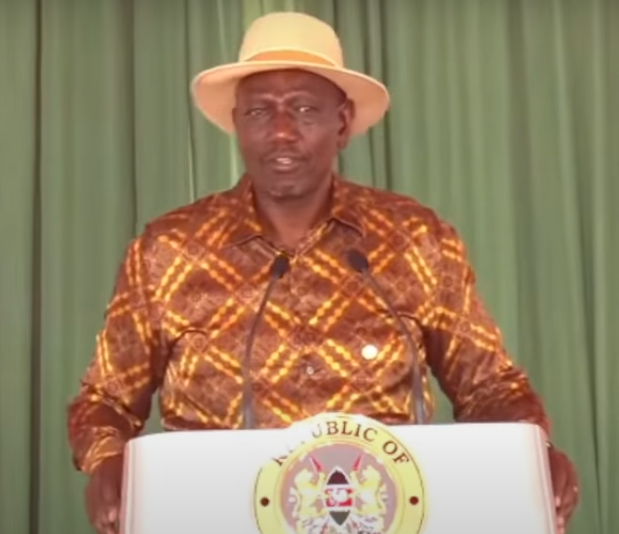
Mbadi: Kenya's debt hit Sh11.02tn in January
Mbadi said this comprises Sh5.93 trillion in domestic debt.
The President credited the government's fiscal discipline and tough decisions for shielding the country from an economic crisis
In Summary
 President William Ruto in Migori/SCREENGRAB
President William Ruto in Migori/SCREENGRABPresident William Ruto has defended his administration’s handling of the economy, noting that Kenya has successfully avoided a debt default despite being flagged as high-risk.
Speaking in Migori on Thursday, Ruto said many had predicted that six African countries, including Kenya, would default on their financial obligations
However, he noted that Kenya has defied those projections and honoured its commitments.
"A lot of people predicted that Kenya would default on their obligations. In fact, there were six countries in Africa that were predicted to default on their debt obligations to the international financial institutions. Out of the six, five defaulted. Kenya did not," he stated.
The President credited the government's fiscal discipline and tough decisions for shielding the country from an economic crisis.
He hailed economic interventions, citing improved inflation rates, a strengthening currency, and the IMF ranking Kenya as the sixth-largest economy in Africa as part of the achievements made.
"I want to assure you that going forward, with the support of the team that I have, we will not allow our economy to go back to where it was. We will march forward, and we're going to get better," he affirmed.
Ruto made the remarks while addressing residents in Migori, highlighting the government's continued commitment to sound economic management despite global financial pressures.
He further defended the decision to cut subsidies, particularly in the agricultural sector, arguing that the move was necessary for long-term sustainability.
The President recalled the 2023 cost of living protests, where demonstrators took to the streets with empty sufurias on their heads to symbolise hunger caused by the high price of food commodities like maize flour.
“There were many issues regarding food security earlier on. You remember when there were protests with people on the roads with sufuria on their heads because of the high price of flour,” Ruto said.
He reiterated that while subsidies may offer temporary relief, they are not a lasting solution to food insecurity.
“I explained that the solution to food insecurity was not through subsidies on consumption, but by supporting production, by going to the farmers,” he added.
He argued that this approach would yield better results in the long term by empowering farmers to produce more, stabilising supply, and eventually bringing down the cost of basic food items across the country.

Mbadi said this comprises Sh5.93 trillion in domestic debt.

Kenya's external debt stood at Sh5.06 trillion as of 2024